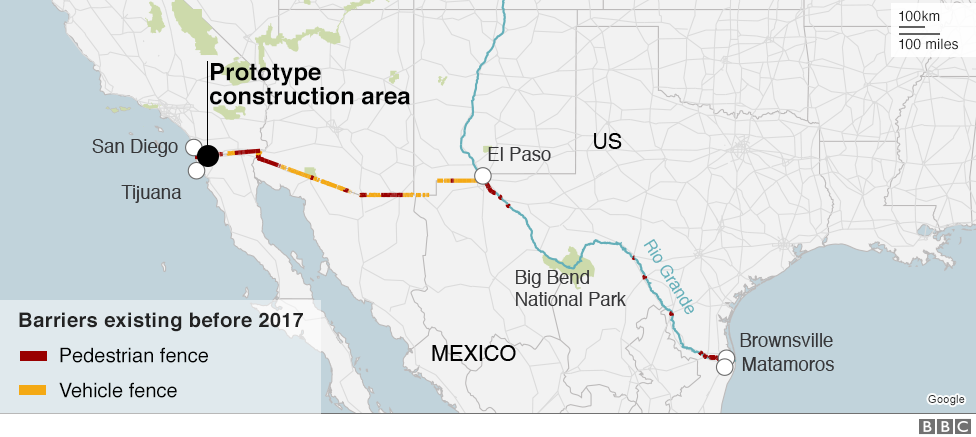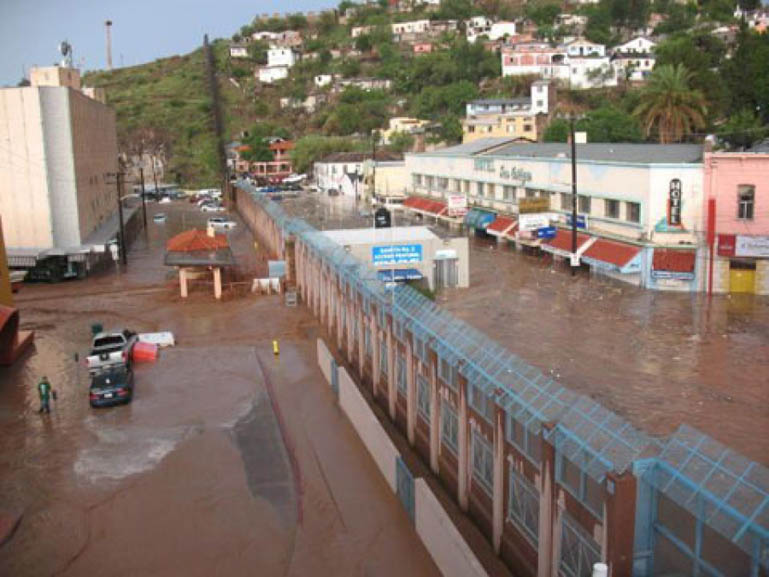Should Donald Trump Build The Wall?
Should Donald Trump Build The Wall?
By: Anthony Park
The obvious answer to this question is simple: of course not. The creation the barrier, as Trump calls it, is meant to keep illegal immigrants from Mexico out of the US. This obviously wrong because one can't just simply remove an entire country from entering the US. Many people agree with this statement. According to the Pew Research Center, 60% of Americans opposed Trump's proposal of expanding the barrier, which is already 654 miles along the southern border. Not even the Democrats want the creation of the wall. Trump wants to make the barrier out of steel, as opposed to concrete, which will increase the cost; furthermore, even Donald Trump has no idea about the total cost to create the vast barrier. All of these downsides to the creation of the wall, and yet Trump still wants to create it. The economic and political evidence clearly does not stop Trump, but will the environmental consequences of the wall convince Trump to stop the barrier?



As you can clearly see, not only will the barrier created by Trump create a lot of political and economic issues, but it will also create huge environmental issues. So here is some things to think about...
1. Do you believe that these economic issues will be enough to convince people to stop the creation of the barrier? Why or why not?
2. Are there any other ways you can think of that will affect the environment that were not discussed?
Sources
1. https://www.bbc.com/news/world-us-canada-46824649
2. https://www.theguardian.com/us-news/2019/jan/15/trump-mexico-border-wall-status-migrants
3. https://qz.com/1353798/the-us-mexico-border-walls-dangerous-costly-side-effect-enormous-floods/
4. https://www.nationalgeographic.com/environment/2019/01/how-trump-us-mexico-border-wall-could-impact-environment-wildlife-water/
By: Anthony Park
The obvious answer to this question is simple: of course not. The creation the barrier, as Trump calls it, is meant to keep illegal immigrants from Mexico out of the US. This obviously wrong because one can't just simply remove an entire country from entering the US. Many people agree with this statement. According to the Pew Research Center, 60% of Americans opposed Trump's proposal of expanding the barrier, which is already 654 miles along the southern border. Not even the Democrats want the creation of the wall. Trump wants to make the barrier out of steel, as opposed to concrete, which will increase the cost; furthermore, even Donald Trump has no idea about the total cost to create the vast barrier. All of these downsides to the creation of the wall, and yet Trump still wants to create it. The economic and political evidence clearly does not stop Trump, but will the environmental consequences of the wall convince Trump to stop the barrier?

As seen in the picture above, the barrier is designed to go from the Gulf of Mexico in Texas to the Pacific Ocean in California. The area in between contains six separate eco-regions, ranging from desert scrubs to forest woodlands to wetland marshes, and both contain large amounts of saltwater and freshwater. Constructing the barrier will bisect the habitats of 1506 native animals and plants, including 62 species that are listed as critically endangered. This barrier will also increase soil erosion, alternate water flow and patterns of wildfires, causing and increase in the risk to both people and animals by trapping their escape.

The barrier would also increase flooding in certain areas. For example, in 2008, a 5 mile long segment of a 15 feet high wire mesh, intended to restrict illegal activity, trapped debris flowing through the national was during a 90 minute thunderstorm, causing water to flood from two to seven feet high. This flood alone caused $8 million worth of damage and drowned two people. This flood happened in Arizona, a location of where the barrier was already built. It is safe to say that if this barrier extends to areas such as the Rio Grande Valley, the same flooding issues would also occur. In fact, this has already happened, to an extent. In 2006, cities in Texas and Mexico experienced heavy precipitation, causing $600 million in damage in Mexico and $200 million in Texas. These damages occured because of debris being trapped in the Mexico side. The reasons the barrier creates floods is because the debris gets trapped inside the barrier, which creates a dam and pushes water into other areas, causing other areas to flood.

As mentioned before, the creation of the barrier will disrupt the wildlife living in the area. The barrier will increase the risk to species survival by isolating animal populations and limiting the species ability to roam for food, water, and reproduction. The barrier will also trap wildlife from escaping fires, floods, or heat waves. The barrier will also disrupt season migration, affecting access to water and birthing sites for the Peninsular bighorn sheep that roam between California and Mexico. The barrier has fragmented populations of the Sonoran pronghorn and diminished chances of re-establishing colonies of the Mexican gray wolf, jaguars, and ocelots in their range in the United States. These limits on animals will also have an effect on the plants. For example, the seeds of mesquite trees germinate best after they have passed through the digestive systmes of javelinas and coyotes, but if these animals can not reach the plants, the plants will die off and will not reproduce.
As you can clearly see, not only will the barrier created by Trump create a lot of political and economic issues, but it will also create huge environmental issues. So here is some things to think about...
1. Do you believe that these economic issues will be enough to convince people to stop the creation of the barrier? Why or why not?
2. Are there any other ways you can think of that will affect the environment that were not discussed?
Sources
1. https://www.bbc.com/news/world-us-canada-46824649
2. https://www.theguardian.com/us-news/2019/jan/15/trump-mexico-border-wall-status-migrants
3. https://qz.com/1353798/the-us-mexico-border-walls-dangerous-costly-side-effect-enormous-floods/
4. https://www.nationalgeographic.com/environment/2019/01/how-trump-us-mexico-border-wall-could-impact-environment-wildlife-water/

Comments
-Adam Ghanem